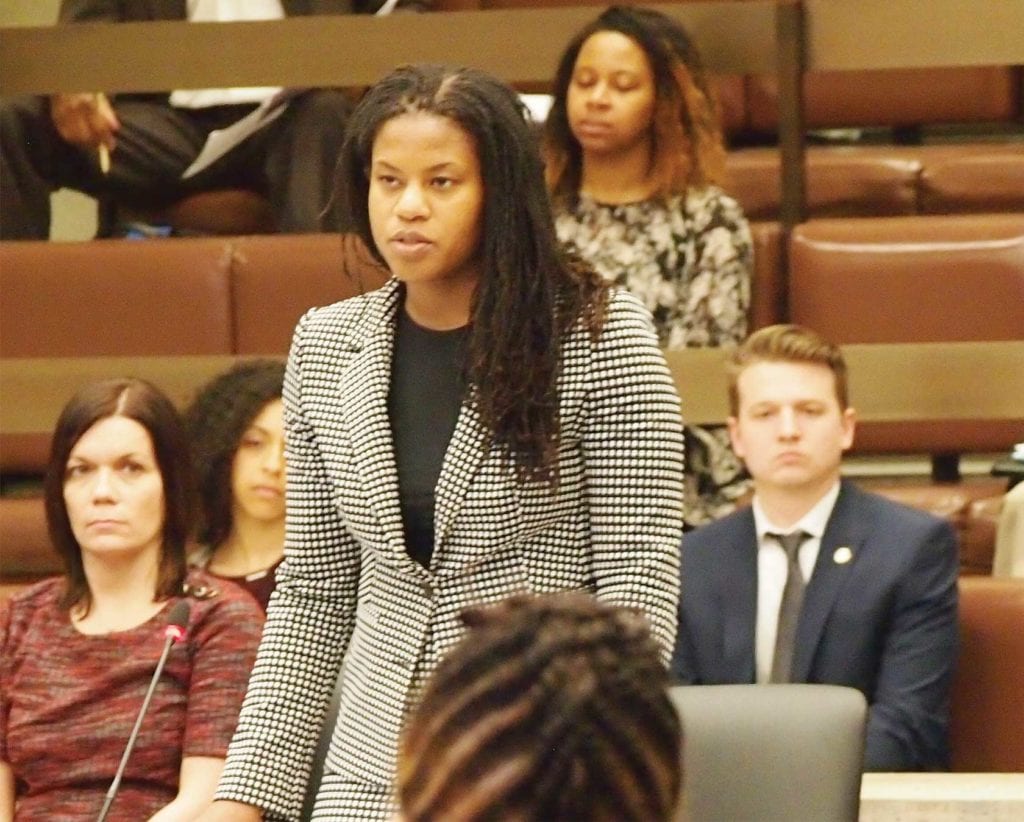Edwards pushes for council budget power
Proposes ballot question to give councilors ability to write budget

Boston city councilors are continuing their discussion on changing the city’s charter. District 1 Councilor Lydia Edwards held a second virtual hearing on Oct. 8 on a possible ballot question for next year’s municipal election – voters could have the chance to change the city’s charter, allowing City Council to introduce its own budget, edit the mayor’s budget and let the residents distribute a percentage of the total.
Edwards told the Banner that by advancing the proposal as a ballot question, the Council can change the charter without going through the Legislature. If the council votes yes on the ballot question, the voters will decide in 2021.
“This is not only the most constitutional but the most people-centered way of asking, I think, the most relevant question for our time, which is, ‘Where do you want your money going?’” Edwards said.
The point of the change to the charter is summarized in Edward’s first line of her ordinance: “The Mayor and City Council of the City of Boston shall hold equal budgetary authority.”
Boston’s councilors haven’t held equal budgetary authority since 1909. Even though voters could vote against this change, Edwards still sees the potential for a ballot question as a win.
Edwards has received some pushback from her fellow councilors and the Boston Municipal Research Bureau. In the past, District 3 Councilor Frank Baker has noted that giving the City Council equal budgeting power could bring down the city’s bond rating, a measure of the city’s credit.
Pam Kocher, president of the non-partisan Boston Municipal Research Bureau, says that the change to the charter is bad for the city, and that councilors should use the power they already have. Supporters of the change argue that although the City Council can approve or reject spending after the budget is approved, they cannot do it before, and they cannot veto specific parts of a mayor’s budget.
“We think that if there’s two competing powers tossing the budget proposals back and forth to each other, there’s a bit of a lack of accountability, if there’s equal sharing of responsibility,” Kocher told the Banner. The “strong mayor” form of government we have now, she said, has ensured strong management of Boston’s financial health.
Organizers for economic justice also returned for this second hearing to discuss a possibility for more participatory budgeting. Boston already allows teens to participate in the budget, by letting them vote on how 1% of the city’s $3.6 billion budget is spent each fiscal year. Though the original version of the ballot question does not include the opportunity for residents to directly determine where a portion of the budget goes, councilors considered the possibility of that happening if the city charter is changed to give them more power.
“Participatory budgeting is a way to shift the current dynamic and engage everyday folks into the civic life of the city,” said Alex Papali, political director at the Center for Economic Democracy.
The council has four months to finalize and vote on whether or not the question will appear on next year’s ballot. After that, it will be up to registered voters to give more power to the council and drastically change the budgeting process.






